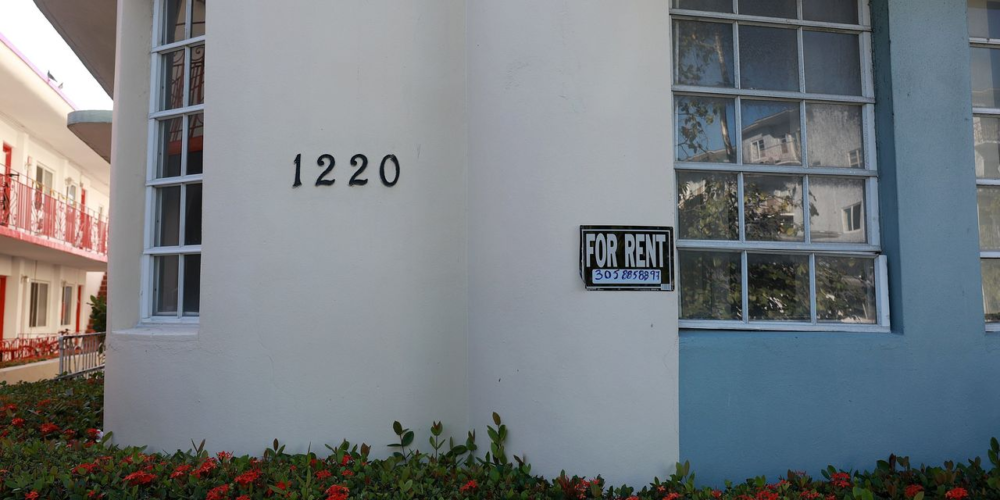Rent growth is cooling and apartment landlords are feeling the heat, especially those who will soon need to refinance debt they took on to buy buildings. Yet one company is still upbeat on the outlook for multifamily rentals, particularly in the Sun Belt.
“You have major supply constraints in most rental markets [and] the housing affordability crisis continues to [result in an] increasing pool of renters in most markets,” Alan Lewis, co-founder and chief investment officer of DiversyFund, told MarketWatch.
“So we’re definitely bullish on multifamily both in the short term and the long term,” he added. The company is particularly optimistic about rent growth in the Sun Belt and owns a number of properties in Florida, South Carolina, North Carolina and Texas.
DiversyFund is a San Diego-based real-estate investing platform that allows people to invest in commercial real estate, particularly in apartment buildings, through investment funds. The company’s approach is similar to Fundrise, another real-estate investing platform that is also bullish on the Sun Belt.
Investors put in a minimum of $500 and get access to the company’s real-estate investment funds, or REITs. The company charges a certain percentage in fees for asset management and and other services. Accredited investors who put down bigger sums have access to additional investment funds.
At Fundrise, the minimum initial investment is $10, and accredited investors also have access to more funds.
DiversyFund, which manages 12 multifamily properties, said it had over 28,000 investors on its platform. Lewis said the company targets properties that have existing tenants and aims to hold the property for around five years, over which time it does renovation work to improve the building internally and externally, ultimately increasing rents.
Three factors stressing multifamily investors
Among multifamily investors, some of the shine is wearing off the sector due to three shifts that are under way in the U.S. economy. One apartment investor lost four Houston complexes to foreclosure recently, the Wall Street Journal reported, due to a confluence of those factors.
The first factor is that some investors have been hurt by a drop in multifamily home values. According to real-estate analytics firm Green Street, the value of apartment buildings has dropped by 21% in the last 12 months.
The second is the gloomy outlook for those who took on loans with a floating rate that need to be refinanced in the near future. The company in the Wall Street Journal report, Applesway Investment Group, saw the interest rate on one of its properties go from 3.4% to 8%.
At least $25 billion in securitized mortgages backed by rental apartment buildings will expire in 2023, CRED iQ said in January. That’s over 2,300 multifamily loans, with New York City accounting for 9% of the debt.
DiversyFund has several properties that are up for refinancing, Lewis said, but because the company has multiple properties, it is weighing the option of selling one to generate enough capital to refinance and restructure the expiring debt. “The beauty about having a fund is that you have multiple properties in one portfolio, so it allows you to have some flexibility,” he said.
The third factor is that rent growth has slowed nationwide. The latest inflation print showed that rental inflation is showing signs of abating.
But in the Sun Belt, rent growth is still running hot, Lewis noted. The median rent in Miami was $1,948 as of April 2023, according to Apartment List, and prices are up 5.6% year over year. In Raleigh, N.C., rents are up 2.9% year over year, and in Charleston, S.C., they are up 10.6%. In contrast, nationwide, rents are only up 2.6% compared with last year.
Lenders are more cautious now, Lewis noted, and more conservative in their underwriting. But investing in real estate is still a good bet, he said.
“Real estate is tangible. It enjoys a host of tax benefits for investors,” Lewis said. “As rents go up, if you’re an apartment investor, if you’re the landlord, then obviously you stand to benefit from that.”
“And unlike the U.S. dollar,” he added, “you can’t just print more real estate overnight.”
Also read: Rental properties come with risks — what to know before becoming a landlord



